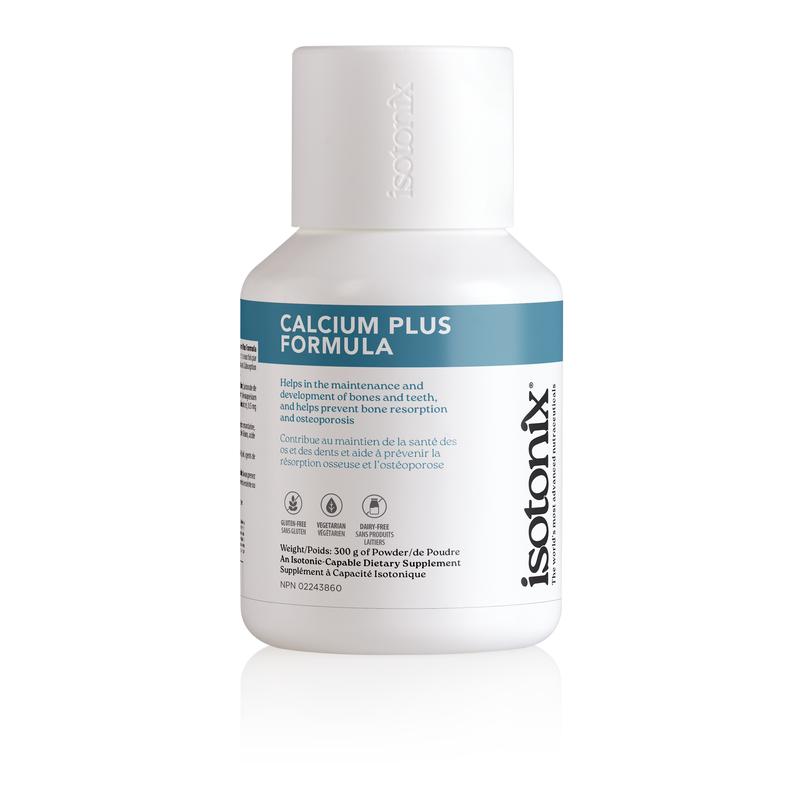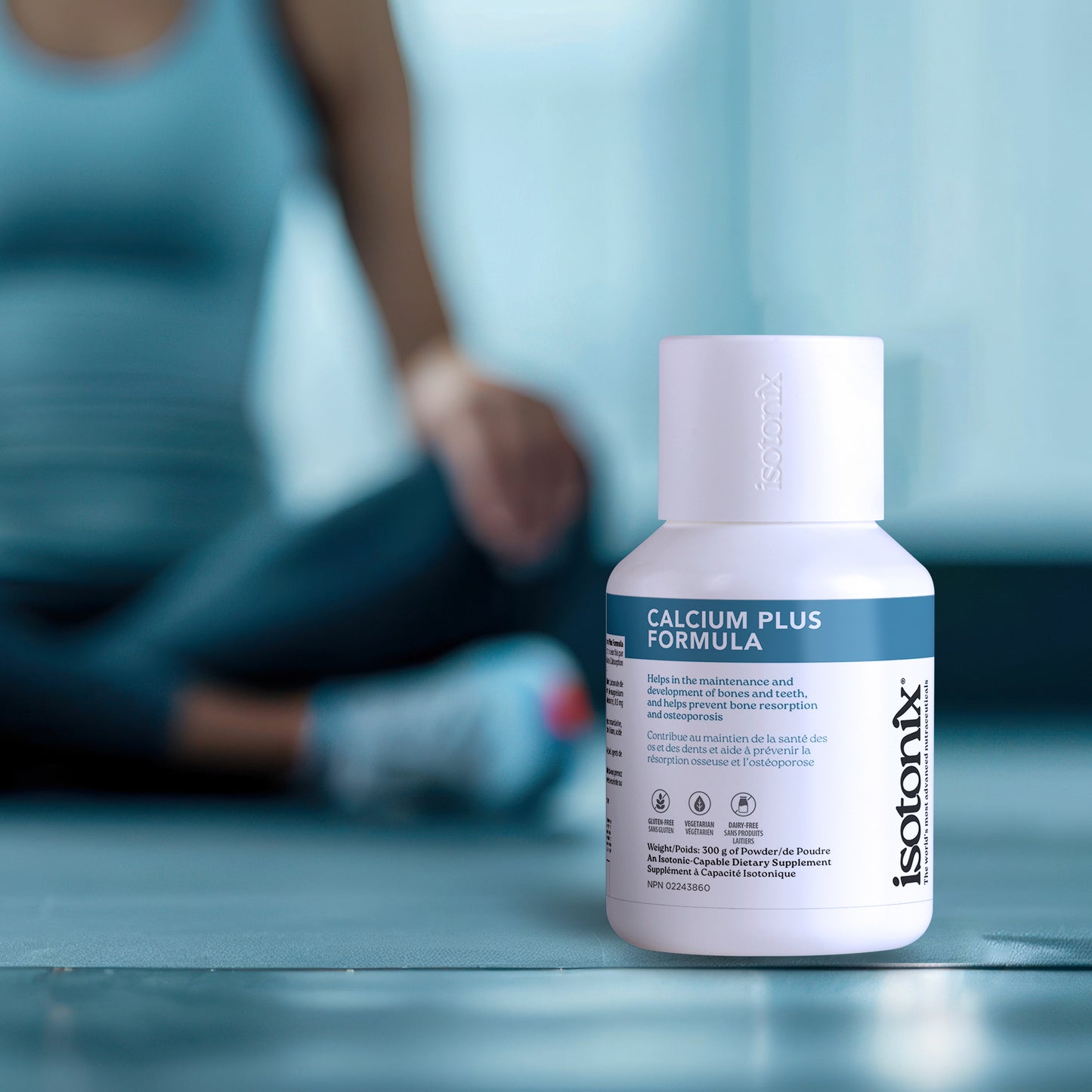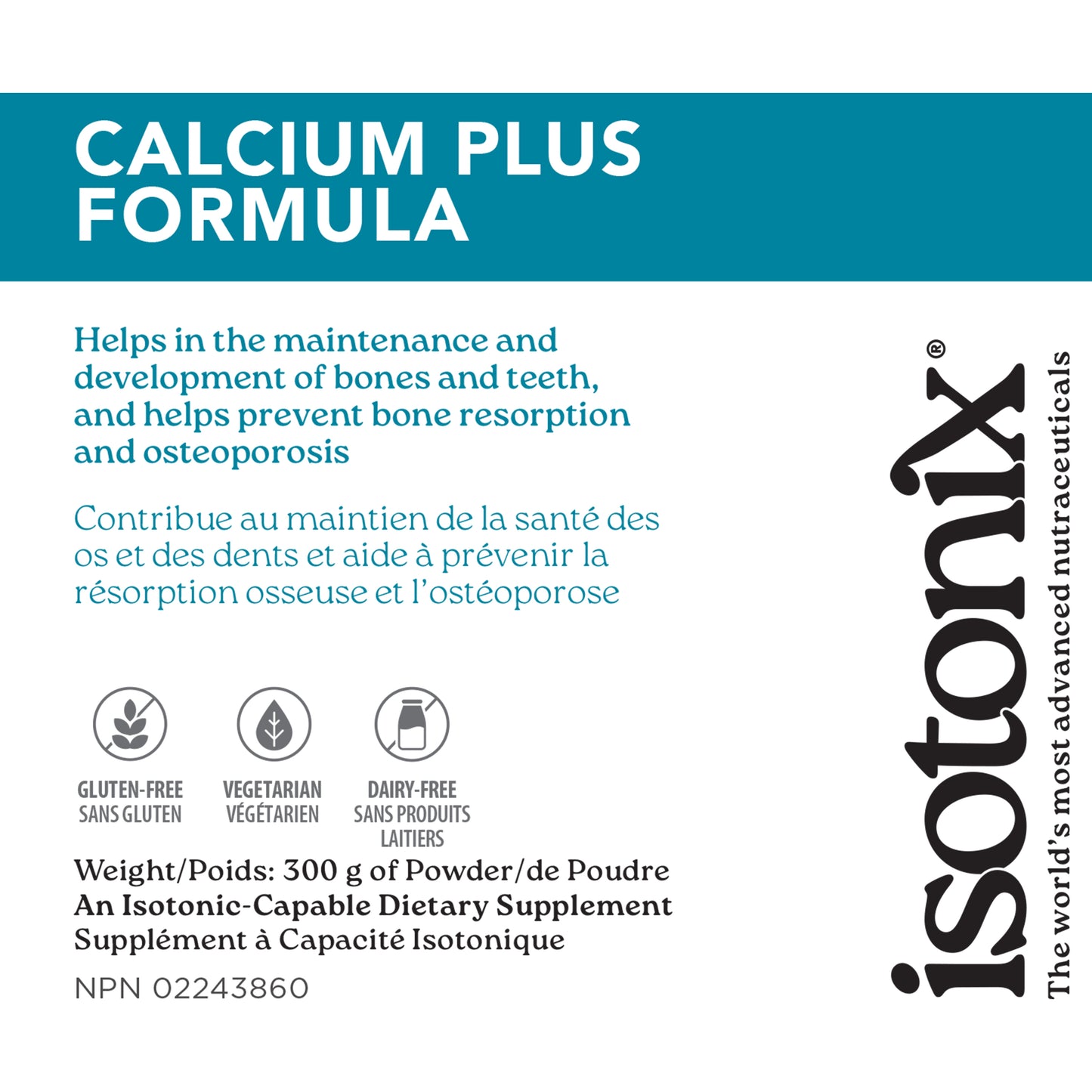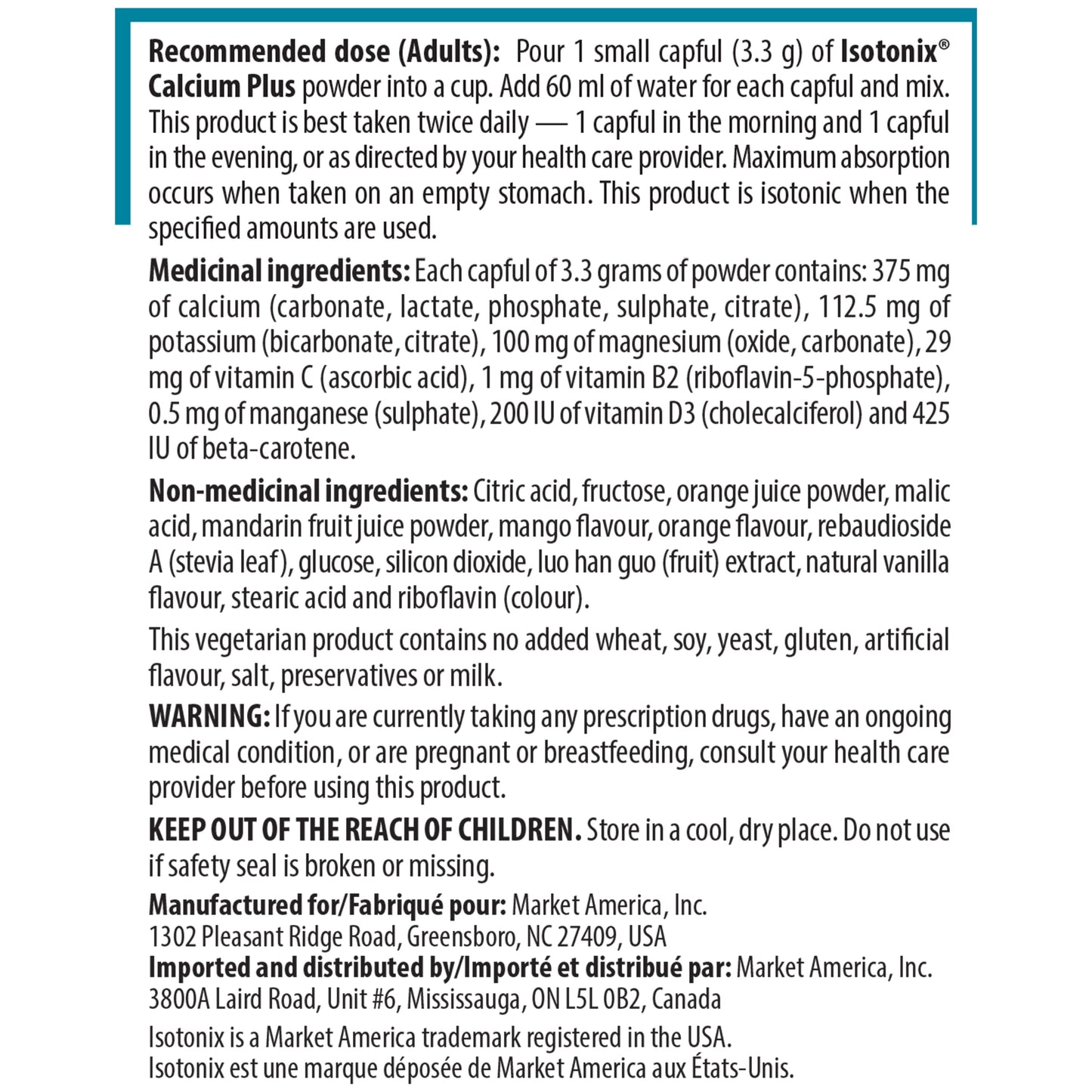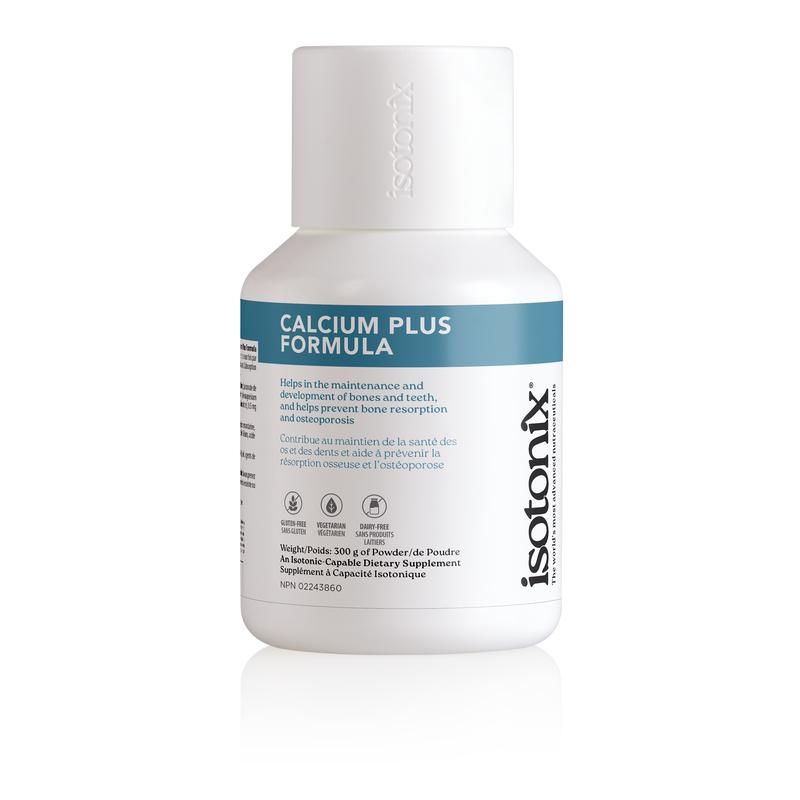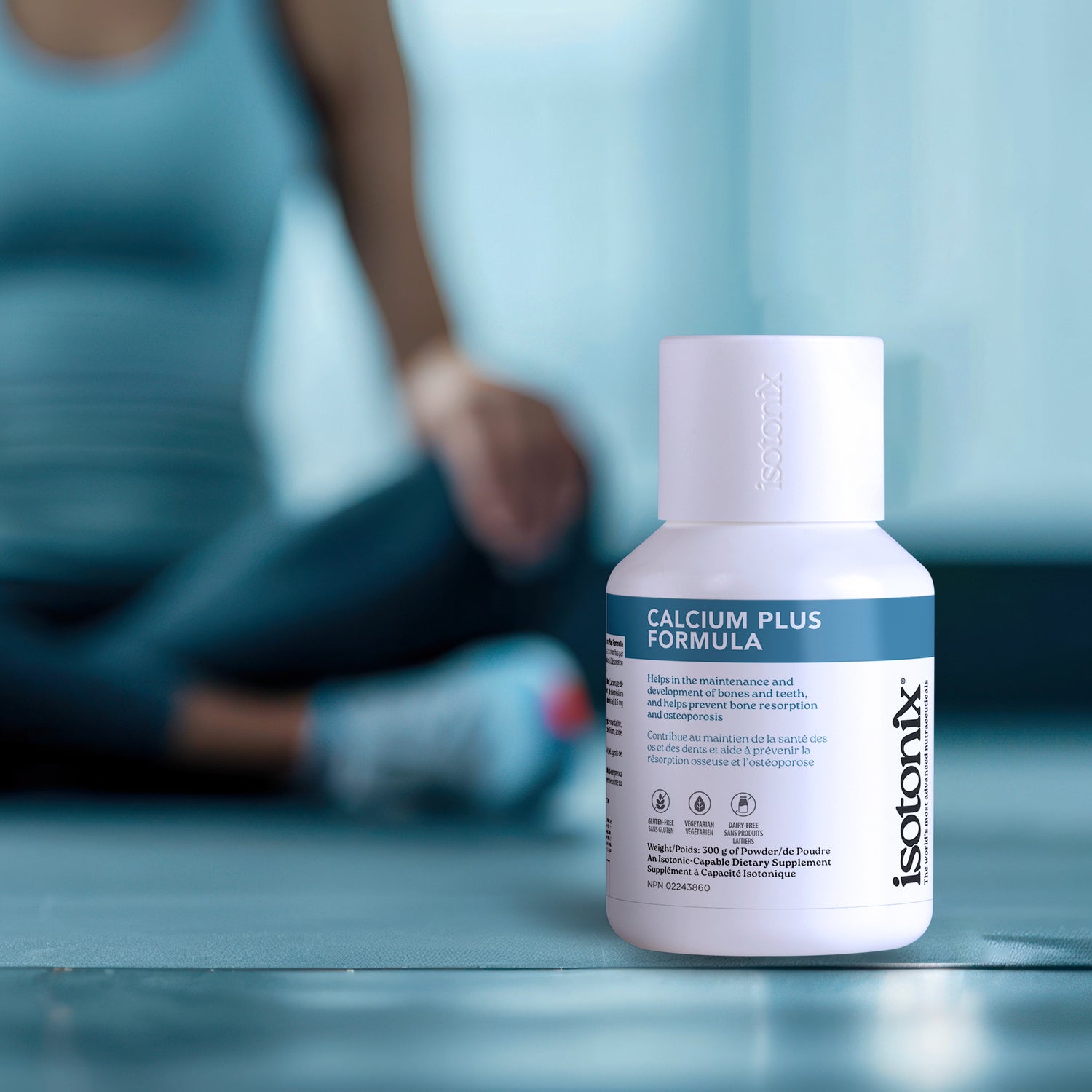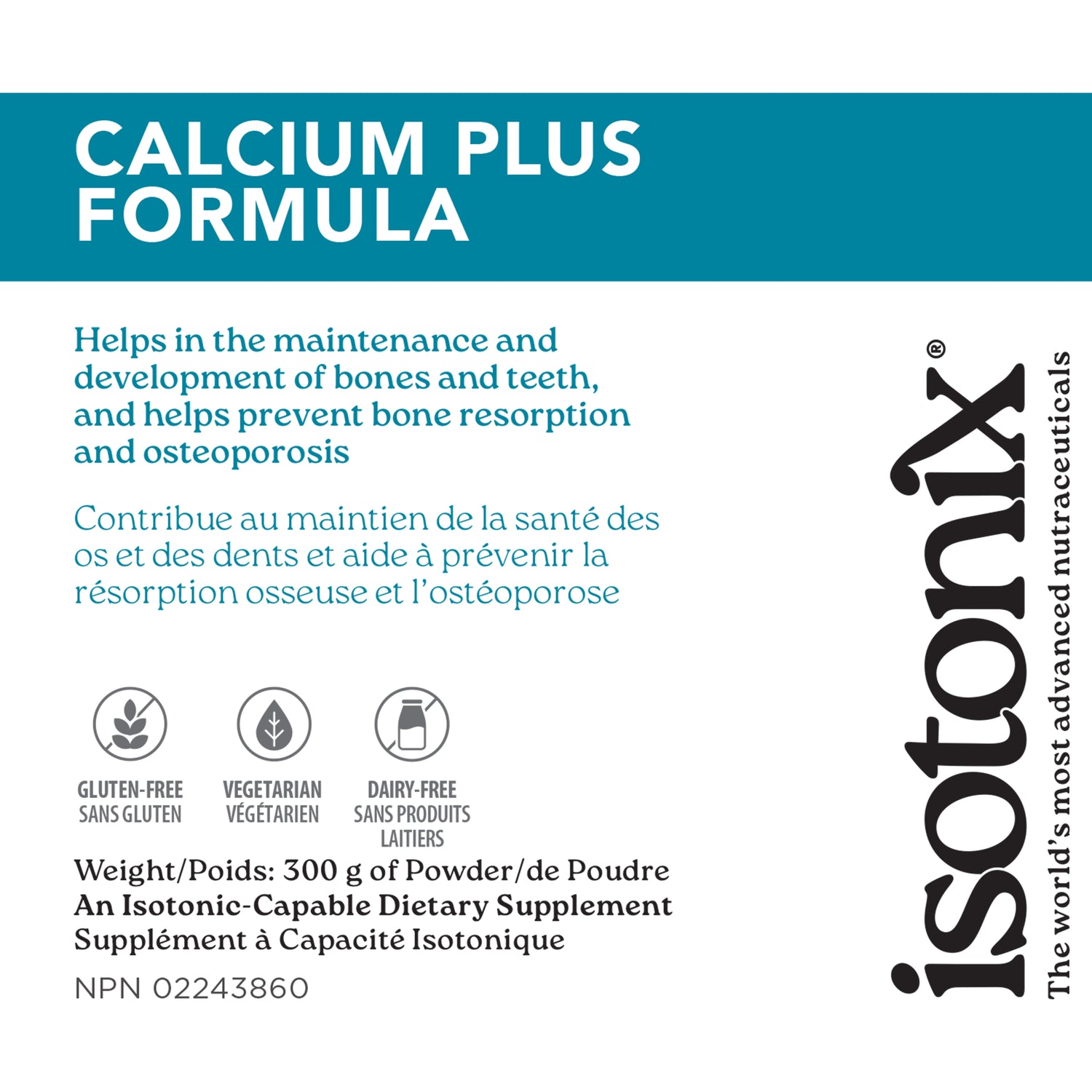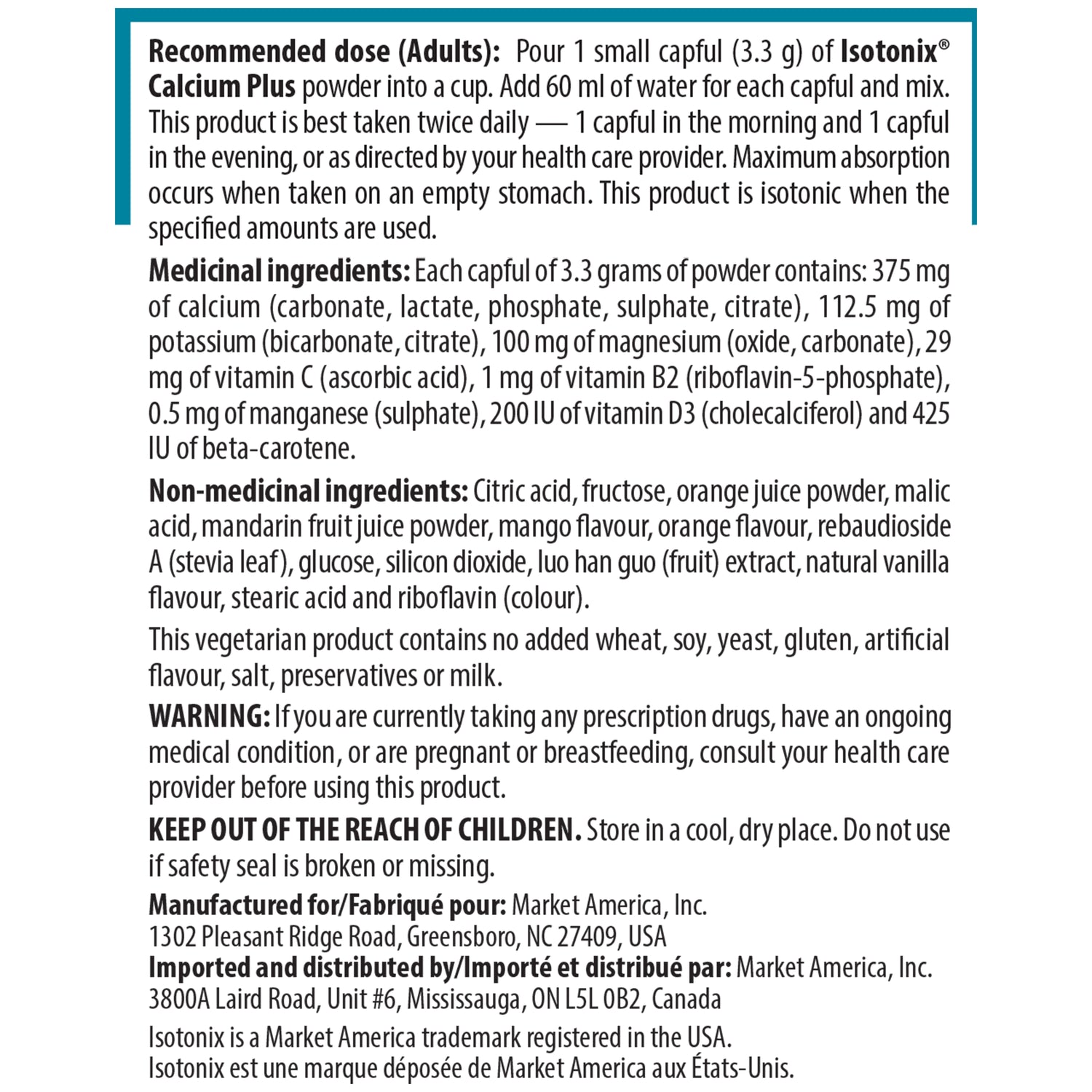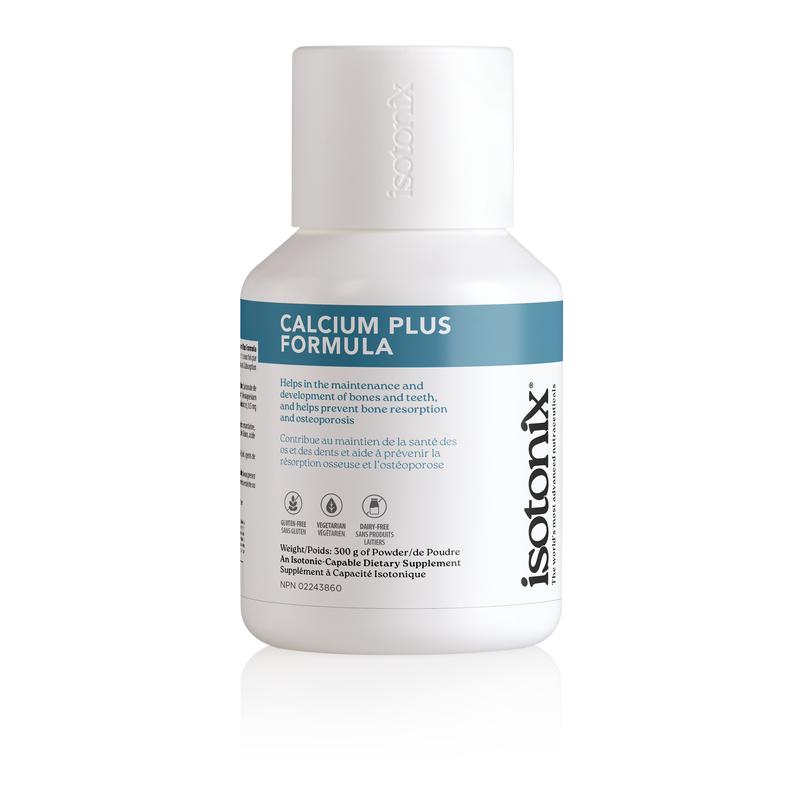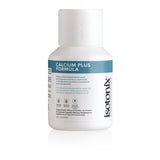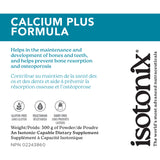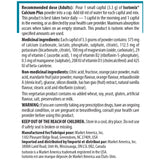Isotonix® Calcium Plus
Market America
Isotonix® Calcium Plus
SKU-C13020
90 servings
Couldn't load pickup availability
Similar Categories
Primary Benefits of Isotonix® Calcium Plus
An optimal blend of calcium.
- Helps in development and maintenance of bones and teeth
- Helps in the absorption and use of calcium and phosphorous
- Helps to prevent bone resorption and osteoporosis
- Maintains good health
Calcium is essential for building and maintaining strong bones. Isotonix® Calcium Plus provides the body with an optimal blend of calcium, vitamin D3, magnesium, and vitamin C in an efficient isotonic solution that is readily absorbed by the body. Isotonix Calcium Plus paves the way for powerful results since it is in an isotonic form rather than a tablet. Calcium in tablet form is difficult for your body to absorb. People may fail to absorb tablet calcium supplements because the calcium supplement is not blended with vitamin D and magnesium; these are necessary to aid in the absorption and use of calcium. Even if the calcium tablet is blended correctly, it may be difficult for the body to utilize or break down the calcium. One explanation may be that many calcium brands use calcium from eggshell or oyster shell. These may not be well absorbed by the body. Another reason calcium may not be absorbed from a tablet is because of DCP, which is a binding agent used to hold the tablet together. DCP does not break down in the body.
Even assuming no binders are used in the calcium tablet, the body must still break down a hard-pressed tablet into a usable form. If the tablet cannot be broken down sufficiently in the stomach, then the calcium will not be absorbed. If you can't break down the calcium, your body is robbed of the calcium needed to support bodily functions. Ordinary calcium tablets require stomach acid to dissolve their compounds, but Isotonix Calcium Plus has no need of stomach acids to be utilized. It delivers an efficient calcium solution that is more readily absorbed by the intestine. Its natural citrus flavor is preferable to the chalky taste of typical chewable calcium wafers or tablets. Many calcium supplements exist in the marketplace, but only Isotonix Calcium Plus delivers a potent package of calcium and complementary nutrients through an isotonic system of delivery. This translates into a lower cost overall when compared to calcium supplements in pill form by making more of the active ingredients available to the body. Don't be misled by ingredient amounts. What really counts is the amount of active ingredients that your body can ultimately use.
Key Ingredients
Calcium
Calcium is found in the highest concentrations in milk. Other foods rich in calcium include the vegetables collard greens, Chinese cabbage, mustard greens, broccoli and bok choy, as well as tofu and sardines with bones included. Calcium is an essential mineral with a wide range of biological roles. Sufficient daily calcium intake is necessary for maintaining optimal bone density and health. In bone, calcium accounts for approximately 40 percent of bone weight. The skeleton has a structural requisite and acts as a storehouse for calcium. When the body does not get enough calcium per day, it draws calcium from your bones. This may lead to osteoporosis. Osteoporosis is an age related thinning of the bones, which has been associated with a greater risk of broken hips and other bones. Stooped posture, which can occur with age, is caused by an accumulation of small fractures in the vertebrae. Apart from its importance in bones and teeth, calcium supports normal muscle contraction, nerve health, heart rhythms, blood coagulation, glandular secretion, energy production and immune system function.
Magnesium
Foods rich in magnesium include unpolished grains, nuts and green vegetables. Green leafy vegetables are potent sources of magnesium because of their chlorophyll content. Meats, starches and milk are less rich sources of magnesium. Refined and processed foods are generally quite low in magnesium. More than 34% of Canadians over the age of 19 have been found to consume magnesium in quantities below the estimated average requirement (EAR), with the prevalence of inadequate intakes rising to greater than 40% in half the adult age and sex groups. Some surveys report lower intakes, and some believe that the dietary intake for many may be inadequate. Magnesium is a component of the mineralized part of bone and is necessary for the metabolism of potassium and calcium in adults. It helps maintain normal levels of potassium, phosphorus, calcium, adrenaline and insulin. It is also important for the mobilization of calcium, transporting it inside the cell for further utilization thus making it helpful in preventing osteoporosis. It plays a key role in the functioning of muscle and nervous tissue. Magnesium is necessary for the synthesis of all proteins, nucleic acids, nucleotides, cyclic adenosine monophosphate, lipids and carbohydrates. Magnesium is required for energy release, regulation of the body temperature, proper nerve function, and metabolism regulation. Magnesium is required by your body to build healthy bones and teeth, and for proper muscle development. It works together with calcium and vitamin D to help keep bones strong and prevent osteoporosis.
Manganese
Manganese is a mineral found in large quantities in both plant and animal matter. The most valuable dietary sources of manganese include whole grains, nuts, leafy vegetables and teas. Manganese is concentrated in the bran of grains, which is removed during processing. Only trace amounts of this element can be found in human tissue. Manganese is predominantly stored in the bones, liver, kidney and pancreas. It aids in the formation of connective tissue, bones, blood-clotting factors and sex hormones, and plays a role in fat and carbohydrate metabolism, calcium absorption and blood sugar regulation. Manganese is also necessary for normal brain and nerve function. Manganese is a component of the antioxidant-enzyme manganese superoxide dismutase (MnSOD). Antioxidants scavenge damaging particles in the body known as free radicals. These particles occur naturally in the body but can damage cell membranes, interact with genetic material, and possibly contribute to the aging process as well as the development of a number of health conditions.
Vitamin B2
Liver, dairy products, dark green vegetables and some types of seafood are primary sources of riboflavin. Vitamin B2 serves as a co-enzyme, working with other B-vitamins. It assists healthy red blood cell formation, supports the nervous system, respiration, antibody production and regulating human growth. It is also necessary for healthy skin, nails, hair growth and general good health including regulating thyroid activity. Vitamin B2 plays a crucial role in turning food into energy as a part of the electron transport chain, driving cellular energy on the micro-level. Riboflavin can be useful for pregnant or lactating women as well as athletes due to their higher caloric needs. Vitamin B2 helps the breakdown of fats while functioning as a cofactor or helper in activating B-6 and folic acid. Vitamin B2 is a water-soluble vitamin, one that cannot be stored by the body except in insignificant amounts. It must be replenished daily.
Vitamin C
The best food sources of vitamin C include all citrus fruits (oranges, grapefruit, lemons, tangerines) as well as other fruits and vegetables such as strawberries, tomatoes, broccoli, brussels sprouts, peppers and cantaloupe. Vitamin C is a rather "fragile" vitamin and can be easily destroyed by cooking or exposure of food to oxygen. Vitamin C promotes a vitamin "sparing" effect, allowing your body to better utilize multiple vitamins and minerals such as thiamin, riboflavin, pantothenic acid, biotin, folic acid, B12, retinaldehyde and alpha-tocopherol and in this case, the mineral calcium. It is also a cofactor or helper in the metabolism of folic acid, some amino acids and hormones., improving iron absorption from the small intestine. Vitamin C helps to regenerate active vitamin E in cell membranes, improves the absorption of iron from the small intestine, and supports the synthesis of collagen. Vitamin C has become the world's most popular vitamin. One reason is its ability to support the immune system. The most convincing evidence suggesting the need for vitamin C supplementation is based on the fact that humans are incapable of producing vitamin C in their bodies. Stress, some drugs and smoking can impair the body's ability to absorb vitamin C. As it is a water-soluble soluble vitamin, vitamin C is flushed from the body each day. Humans do not always eat foods containing an adequate amount of vitamin C and so it often beneficial to take a supplement.
Vitamin D3
Regular sunlight exposure is the main way that most humans get their vitamin D. Food sources of vitamin D include vitamin D-fortified milk (2.5 mcg per cup), cod liver oil and fatty fish such as salmon. Small amounts of vitamin D3 can also be found in egg yolks and liver. Vitamin D promotes the absorption of calcium and phosphorus, and supports the production of several proteins involved in calcium absorption and storage. Vitamin D works with calcium to promote strong, hard bones. It supports normal transport of calcium out of the osteoblasts into the extra-cellular fluid and in the kidneys. It also promotes normal calcium and phosphate re-uptake through the renal tubules and intestinal epithelium. It supports normal skin cell growth and promotes normal production of insulin by the pancreas.
Potassium
Foods rich in potassium include fresh vegetables and fruits such as bananas, oranges, cantaloupe, avocado, raw spinach, cabbage and celery. Potassium is an essential macromineral that helps to keep fluid balance. It also plays a role in a wide variety of biochemical and physiological processes. Among other things, it promotes the transmission of nerve impulses, the contraction of cardiac, skeletal and smooth muscle, the production of energy, the synthesis of nucleic acids and the maintenance of normal blood pressure. Potassium promotes muscle relaxation, and supports normal insulin release. It also promotes normal glycogen and protein synthesis. Potassium is an electrolyte that promotes proper heartbeat, and it is important in supporting the normal release of energy from protein, fat and carbohydrates during metabolism. Potassium also promotes the normal regulation of water balance. Potassium promotes the normal elimination of wastes and generally contributes to a sense of well-being. Potassium is stored in the muscles.
